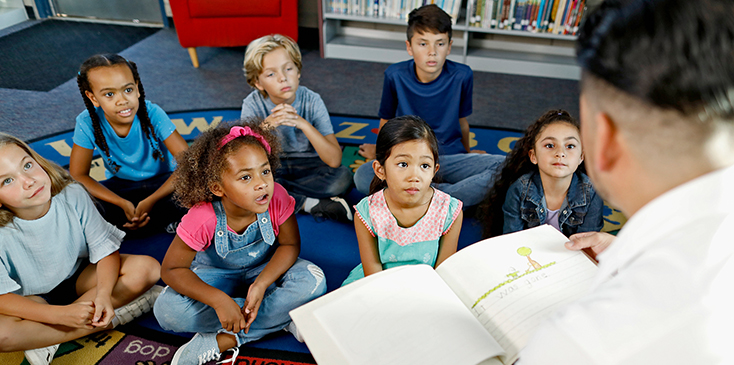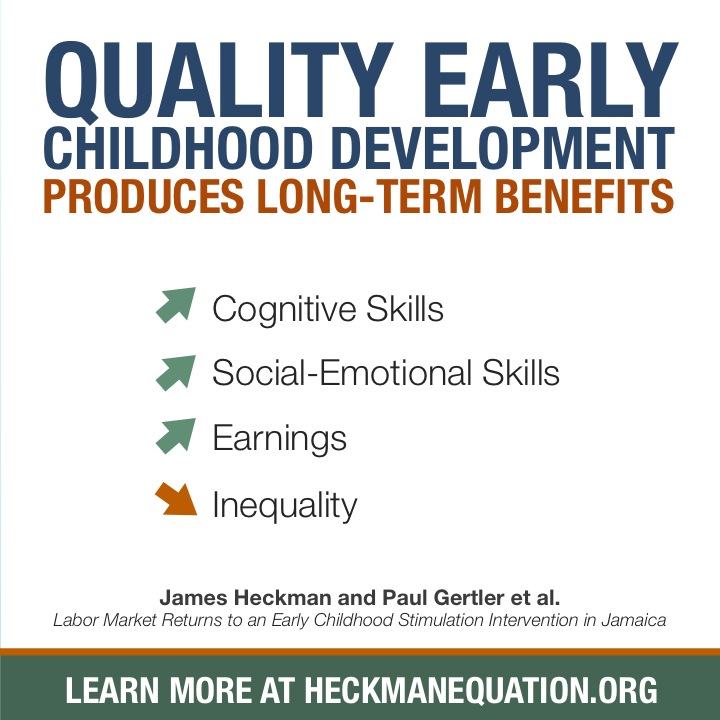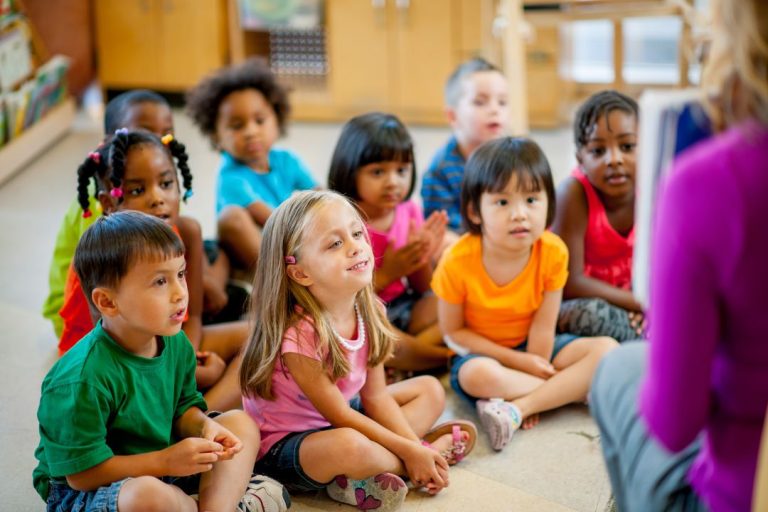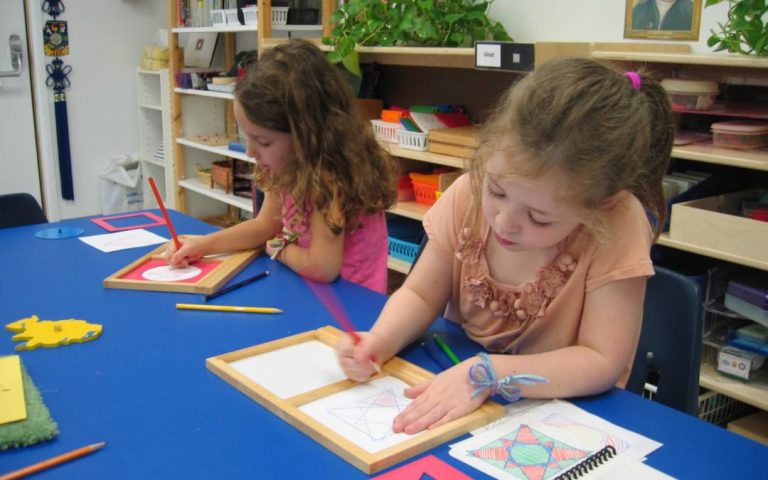What is Early Childhood Education : A Comprehensive Guide

Early Childhood Education is the formal education given to children from birth to age eight. Early Childhood Education encompasses the period of a child’s life when they are developing rapidly, both physically and mentally.
It is a period of time when children learn the most and absorb the most information. Early Childhood Education is not only important for a child’s immediate development but also lays the foundation for their future success in life. The goal of Early Childhood Education is to provide a safe and nurturing environment where children can learn and grow while developing social, emotional, cognitive, and physical skills.
Early Childhood Education helps children develop the necessary skills to succeed academically, socially, and emotionally, and prepares them for a lifetime of learning.
The Importance Of Early Childhood Education
Early childhood education plays a crucial role in laying the foundation for a child’s future development and success. The experiences and learning opportunities provided during this critical period have a lasting impact on a child’s cognitive, social, and emotional development. Understanding the importance of early childhood education is essential for parents, educators, and policymakers to ensure that every child has the opportunity to thrive and reach their full potential.
Developmental Benefits
Early childhood education programs offer a wide range of developmental benefits for young children. Through engaging activities and play-based learning, children develop essential skills such as critical thinking, problem-solving, and creativity. These programs also foster social skills and emotional intelligence, helping children build positive relationships and navigate their emotions effectively.
Long-term Impact On Education
Participation in high-quality early childhood education programs has been linked to long-term positive effects on a child’s academic performance and educational attainment. Children who receive a strong foundation in their early years are more likely to demonstrate higher levels of literacy, numeracy skills, and overall school readiness. This early advantage can significantly influence a child’s educational trajectory and contribute to their long-term success in school.

Credit: www.nu.edu
Key Components Of Early Childhood Education
Early childhood education plays a crucial role in laying the foundation for a child’s lifelong learning and development. It encompasses a range of key components that are essential for nurturing young minds and promoting their holistic growth. Let’s delve into the fundamental aspects that form the cornerstone of early childhood education.
Curriculum Design
The curriculum design in early childhood education focuses on creating a structured framework that integrates various learning domains, such as cognitive, physical, social, emotional, and language development. It emphasizes age-appropriate activities and learning experiences that cater to the unique needs and interests of young children.
Play-based Learning
Play-based learning is a central component of early childhood education, as it allows children to explore, experiment, and engage in hands-on experiences. Through play, children develop critical thinking skills, creativity, and problem-solving abilities, laying the groundwork for future academic success.
Social And Emotional Development
Early childhood education places significant emphasis on fostering social and emotional development in children. It involves creating a nurturing and supportive environment where children learn to build relationships, communicate effectively, regulate their emotions, and develop empathy and compassion towards others.
Different Approaches To Early Childhood Education
Early childhood education encompasses various approaches that are designed to nurture and educate young children in a structured and supportive environment. These approaches play a crucial role in shaping the development and learning experiences of children during their formative years. Here, we will delve into the different approaches to early childhood education, including the Montessori Method, Reggio Emilia Approach, and HighScope Approach.
Montessori Method
The Montessori Method is an educational approach that emphasizes independence, freedom within limits, and respect for a child’s natural psychological, physical, and social development. It is characterized by mixed-age classrooms, self-directed learning, and hands-on, sensory-based learning materials.
Reggio Emilia Approach
The Reggio Emilia Approach is centered on the belief that children are capable of constructing their own learning. It encourages children to explore and discover through a self-guided curriculum, project-based learning, and collaboration with peers and educators. This approach also places a strong emphasis on the use of art and creativity as a means of expression and communication.
Highscope Approach
The HighScope Approach focuses on active participatory learning, where children are encouraged to make choices, solve problems, and engage in hands-on activities. It promotes the development of social and cognitive skills through a structured daily routine, adult-child interactions, and the use of key developmental indicators to track children’s progress.
Qualifications And Training For Early Childhood Educators
Early Childhood Education plays a crucial role in the development and growth of young children. It involves providing a nurturing and stimulating environment that supports their cognitive, social, emotional, and physical development. Early Childhood Educators, also known as ECEs, play a vital role in shaping the early experiences of children and preparing them for future learning and success. The qualifications and training of these educators are essential to ensure the delivery of high-quality education and care for young children.
Educational Requirements
Early Childhood Educators typically need to have at least a high school diploma or equivalent to work in entry-level positions. However, pursuing higher education in the field, such as an associate or bachelor’s degree in Early Childhood Education or a related field, is increasingly becoming the standard. Many employers also require ECEs to obtain a relevant state certification or licensure to demonstrate their competency and qualifications in the field.
Professional Development Opportunities
Continuing education and professional development are essential for Early Childhood Educators to stay updated with the latest research, best practices, and methodologies in the field. There are various opportunities available for ECEs to enhance their skills and knowledge, such as attending workshops, conferences, and training programs. Additionally, obtaining specialized certifications in areas like child development, curriculum planning, and behavior management can further strengthen an educator’s qualifications and expertise.
Challenges In Early Childhood Education
Early Childhood Education faces several challenges that impact access, inclusivity, and diversity. Addressing these challenges is crucial to ensure all children receive quality education.
Access And Affordability
Access to quality early childhood education is limited by affordability and availability. Families with low income often struggle to afford preschool programs, leading to disparities in educational opportunities.
Inclusivity And Diversity
Ensuring inclusivity and diversity in early childhood education is essential for creating a welcoming and supportive learning environment. Children from diverse backgrounds should feel represented and included in the curriculum and classroom activities.
Technology In Early Childhood Education
Early Childhood Education encompasses various approaches to nurturing and educating young children. One significant aspect of this field is the integration of technology in educational practices.
Benefits Of Educational Apps
Educational apps enhance learning through interactive and engaging activities.
- Encourages exploration and creativity.
- Improves problem-solving skills.
- Facilitates personalized learning experiences.
Screen Time Guidelines
Setting limits on screen time is crucial for maintaining a healthy balance.
- Limit screen time to age-appropriate durations.
- Ensure content is educational and age-appropriate.
- Encourage physical activity and outdoor play.
Parental Involvement In Early Childhood Education
Parental involvement in early childhood education plays a crucial role in a child’s overall development and academic success. When parents actively participate in their child’s educational journey, it fosters a strong foundation for learning and sets the stage for future academic achievements. This section will discuss the significance of parental involvement in early childhood education and provide actionable insights into strengthening the home-school connection and supporting learning at home.
Home-school Connection
Establishing a strong home-school connection is vital for a child’s educational progress. Regular communication between parents and educators creates a collaborative environment that benefits the child’s learning experience. Open dialogue allows parents to stay informed about their child’s progress, upcoming events, and educational objectives. It also enables educators to gain valuable insights into the child’s individual needs and interests, facilitating a more personalized approach to teaching and learning.
Supporting Learning At Home
Parents can actively support their child’s learning journey at home through various engaging activities and educational resources. By creating a conducive learning environment at home, parents can reinforce the concepts and skills introduced in the classroom. Reading together, engaging in educational games, and incorporating real-life experiences into learning opportunities are effective ways to extend learning beyond the school setting.

Credit: www.asparis.org
Future Trends In Early Childhood Education
Exploring the future trends in early childhood education provides insights into the evolving landscape of learning for young children. As the field continues to advance, several key areas are emerging as crucial focal points. Let’s delve into these future trends in early childhood education:
Incorporating Steam Education
Integrating STEAM education in early childhood programs enhances children’s learning by combining science, technology, engineering, arts, and mathematics. This approach fosters creativity and critical thinking skills.
Focus On Well-being And Mental Health
Emphasizing well-being and mental health in early childhood education prioritizes the holistic development of children. Creating a supportive environment promotes emotional resilience and overall wellness.

Credit: www.teachaway.com
Frequently Asked Questions
What Is The Meaning Of Early Childhood Education?
Early childhood education refers to the educational programs and strategies designed for children from birth to the age of eight. It aims to promote the holistic development of a child’s physical, social, emotional, cognitive, and language skills. It emphasizes play-based learning, socialization, and early intervention to support a child’s future success in life.
What Is The Meaning Of Early Childhood Studies?
Early childhood studies refer to the academic field that focuses on the development, education, and care of children from birth to age eight. It encompasses various disciplines such as psychology, sociology, and education to understand how young children learn, grow, and interact with their environment.
What Is The Role Of An Early Childhood Educator?
An early childhood educator nurtures and educates young children, promoting their social, emotional, and cognitive development through play-based learning activities.
What Is Learning In Early Childhood?
Learning in early childhood refers to the crucial process of acquiring knowledge and skills during the formative years. It involves exploration, play, and interactions that lay the foundation for cognitive, social, and emotional development. Early childhood learning is vital for a child’s overall growth and future success.
Conclusion
Early childhood education lays the foundation for lifelong learning and development. By investing in quality early education, we empower our children to thrive academically and socially. Understanding the importance of early childhood education is essential for creating a brighter future for our youngest learners.
Start nurturing young minds today!
Lorem Ipsum is simply dummy text of the printing and typesetting industry. Lorem Ipsum has been the industry’s standard dummy text ever since the 1500s, when an unknown printer took a galley of type and scrambled it to make a type specimen book.






